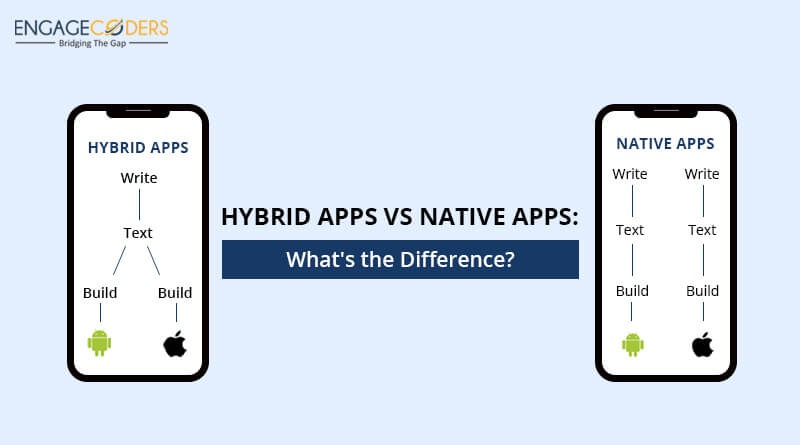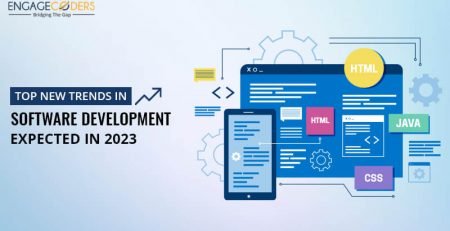HYBRID APPS VS. NATIVE APPS: WHAT’S THE DIFFERENCE?
Wondering what’s the difference between “Native” & “Hybrid” app development? Which tech stack should you choose?
When it comes to mobile app development discussions, it is considered a highlighted topic. Many users ask themselves this question when they consider taking their business online in this digital age.
Do you? Well, of course! Who doesn’t?
At this point, most business owners think that they should create an app to sell or provide their services. You are also thinking the same thing. Right?
It’s a great idea or way to do business in the online world. But, do you know which type of app drives more business forward or whether you should create the application with native technology or hybrid technology?
In this blog, we will guide you toward making a decision. You’ll learn the advantages and disadvantages of both technologies. Also, you will find out which technology provides a better user experience.
Let’s discuss the differences between hybrid and native apps, and some advice for creating business apps.
Native Vs. Hybrid App Development
A quick description of hybrid vs. native app development.
The main difference between the processes of development. Hybrid app development technology is developed across the platforms. On the other hand, native app development is predetermined and carried out for a particular operating system.
In terms of performance, a hybrid app doesn’t perform like a native app, which is based on one platform. So, the selection of app development technology depends on the goals and priorities of the business.
Native App Development
The native app is designed for a single platform, with its own set of tools and programming languages. Native apps take a long time to develop, but they provide a high-performance user experience thanks to a user-friendly interface.
The platform’s UX includes all of the graphics and essential features. Companies usually choose other solutions due to the high cost of native app development, which is the only drawback. It might be a native Android app created in Kotlin or an iOS app created in Swift and Objective-C.
Examples of native apps are WhatsApp, Spotify, Waze, Pokemon Go, and others.
Benefits of Native App Development
- Stable and reliable.
- Less vulnerable to security risks.
- Provide great user experience.
- Best responsive speed and excellent app performance.
- Boost your digital customer engagement.
Drawbacks of Native App Development
- Need to code the app for iOS and Android.
- Longer development timing.
- Requires broader skills to develop apps for multiple apps.
- High development cost due to more resource requirements.
Hybrid App Development
Building a single code base for two platforms is part of the hybrid app development process. It is possible to develop communication between the platform and the web view using specific tools. This device gives hybrid apps the feel of native apps.
The code is then wrapped within the native app using cross-platform frameworks after it has been developed. Web technologies, including JavaScript, CSS, and HTML, are used in development.
Examples of hybrid apps are Evernote, Instagram, Amazon, Twitter, and others.
Benefits of Hybrid App Development
- Work across platforms and devices with a single programming code.
- Single codebase easy to update and maintain.
- Simple development, no need to build from scratch.
- Apps quickly deployed.
- Better for dynamic web content.
Drawbacks of Hybrid App Development
- Present security risks due to plugins and APIs.
- User experience can suffer.
- Constant internet is needed for proper functionality.
- Challenging to make an inclusive design.
Bottom Line
Making decisions is essential to the development of an app; the first step is choosing the type of app, its complexity, UI/UX design, functionality, and other factors. Each choice should be carefully considered, supported by in-depth market research, and in line with corporate goals.
No option is superior to the others. Similar to what you would do in a hardware store, you want the appropriate tool for the job. . App development is a wonderful and challenging endeavor. Choosing whether your software should be native or hybrid is one of these challenges. If you take into account all that has been said so far, you should be more equipped to make the appropriate choice.




